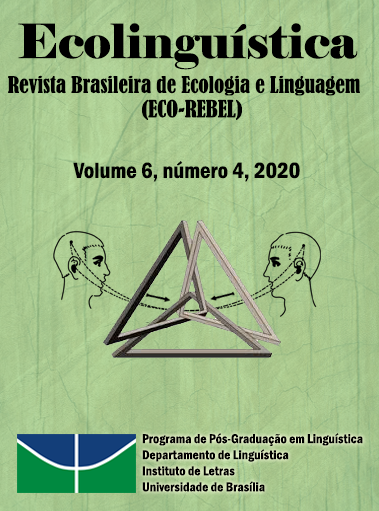Newspeak as Coronaspeak 2020
Keywords:
Coronaspeak; Metaphoric newspeak; Conspiracy theories; Home-office; Covidiots.Abstract
A virus called Corona, in 2020, created a situation which had not existed since the 2nd World War. Everybody was in danger (this time of being infected), and people had to stay at home to avoid being ‘bombed’ (this time by a virus). This situation brought about the creation of several new words and the use of phrases which described the danger and the measures taken against it in a clear, but some of them also in a metaphorical way. News papers used the situation by making fun of the language used, but also by describing the linguistic phenomena which the situation originated. In one Austrian newspaper, a journalist (George Renne in the Kleine Zeitung) called the language used by the government “Newspeak” ”“ echoing George Orwell’s novel 1984. In this article, the most interesting word-creations will be discussed, as well as the various ways in which an unexpected situation (in the whole world) has an effect on the use of language.
References
YOUNG, John Wesley. Totalitarian Language. Orwell’s Newspeak and its Nazi and Communist Anticidents. Charlottesville: University Press of Virginia, 1991.
Downloads
Published
Issue
Section
License
Copyright (c) 2020 Ecolinguística: Revista brasileira de ecologia e linguagem (ECO-REBEL)

This work is licensed under a Creative Commons Attribution-NonCommercial-NoDerivatives 4.0 International License.
Authors who publish in this journal agree to the following terms:
Authors retain copyright and grant the journal the right of first publication. The work is simultaneously licensed under the Creative Commons Attribution License allowing the sharing of the work with acknowledgment of the authorship of the work and initial publication in this journal.
Authors are authorized to enter into additional contracts separately for non-exclusive distribution of the version of the work published in this journal (e.g., publishing in institutional repositories or as book chapters), with acknowledgment of authorship and initial publication in this journal.
Authors are allowed and encouraged to post and distribute their work online (e.g., in institutional repositories or on their personal page) at any point before or during the editorial process, as this can bring about productive revisions as well as increase impact.
Citation of published works (See The Effect of Free Access).



3.png)



